In this interview David talks about what motivated him to go out and get a part-time job, why he chose Starbucks (a great part-time job with benefits), and how he was able to be successful there and eventually pay off his debts.
David just happens to also be a personal finance blogger. You can find his money advice and commentary aimed at the under 30 crowd over at MoneyUnder30.com.
David Weliver was 25 years old and in crazy amounts of debt. Student loans and credit card debt were taking their toll on him.
He was post-college and living in New York City—one of the most expensive places to live in the United States—and working as a journalist—a job that’s not exactly known for paying well. Ironically enough, David was a journalist for a financial magazine.
David didn’t know anything about managing his money and expected to be able to live the same lifestyle he was accustomed to growing up. He maxed out a number of credit cards and his income wasn’t allowing for anything other than paying his bills.
One day while looking over his budget for the month, David realized if he paid his rent, bills, and minimum credit card payments, there was nothing left—nothing left to pay on his debt, nothing for emergencies, not even anything left to go out and have fun with his friends. If you’re looking for pointers to get your own budget started, check out this post.
David knew he had to do something. At that point, he didn’t have the experience necessary to get a higher paying job, so the quickest way he knew to make more money was to get a part-time job.
He ended up with a quintessential part-time job, a Starbuck’s barista. There was a new Starbucks opening that wasn’t exactly convenient to work or home, but it wasn’t bad.
He could work the hours he needed to work, weekends and after 5pm on weekdays. He also got to work on his feet and deal with people, so he took it.
Starbucks wasn’t the only thing David did to pay off his debt. He took a slightly higher paying job in marketing back in his home state of Massachusetts, and he moved in with his parents so he could take the money he would normally spend on rent and apply it to his debt.
Often, people perceive retail jobs—especially ones in the food service industry—as being miserable and low paying. But Starbucks pays a fair wage for the type of work required, and anyone who works over 20 hours gets health insurance.
David said working at Starbucks was the most fun he’d ever had at work. His co-workers were fun and interesting people, and the atmosphere of the store was the same.
At the time, Starbucks was paying employees $10 an hour. David was later promoted to shift supervisor and his pay increased to $11.50 an hour.
Combined with tips (employees split whatever was left each day), David was netting about $800 a month. It was 6 months before he started seeing his debt numbers reduce substantially, but they did.
David advises anyone seeking a part-time job at Starbucks to remember these 2 things:
1.Know your coffee. He was asked a lot of questions about coffee in his interview. It doesn’t disqualify a person if they don’t know anything, but it certainly impresses the interviewer if you do.
2.Be engaging. It is a people job. People won’t go back if they aren’t treated well, no matter how good the coffee is, so show your interviewer that you are a people person.
Alright, today I am here with David Weliver. David blogs at MoneyUnder30.com, and David spent some time, some part-time employment, with Starbucks as a barista.
David did this to help his family out financially and sort of get his income up to achieve some other goals. I am looking forward to chatting with David today.
Philip Taylor: David, welcome.
David Weliver: Thanks, Phil.
Philip Taylor: Good to have you here today. I think the Starbucks barista is the quintessential part-time job when I think about part-time retail jobs, so I am looking forward to talking with you about this opportunity. The first question I always ask folks is, “What made you want to start making some part-time money?”
David Weliver: Yeah absolutely. Well, Phil, thanks again for having me. I would agree with you that being a Starbucks barista probably is, like you said, the quintessential part-time job. It worked for me because I was in crazy debt.
I was about 25-26 years old, and I had racked up a ton of credit card debt, both in college and in the year or 2 immediately following college because I did not know anything about managing my money, and I wanted to live a good lifestyle when I was young.
It really started to take its toll on me. I got to a point where I had maxed out a bunch of credit cards and was not making a lot of money because I went into journalism after school, not a high-paying field, and trying to live the first year out of college in New York City, working as a journalist, in debt. It was a disaster!
So, I was sitting at my desk 1 day after work, looking over my budget for the month, and realizing that if I paid my rent, I paid my necessary bills, and I paid my minimum payments on my credit cards, I had nothing left. There was nothing left to pay any extra on my debt.
There was nothing left to go out and have some fun with friends. There was nothing left, God forbid, if an emergency came along because I did not have anything at the bank at that point.
I knew I had to do something. I just could not cut anymore, and I did not have the experience at that point to get a higher paying day job, at least not overnight.
That was something maybe I could work towards, and I did start to do that, but I said, “I basically need to make more money to make ends meet and start paying off this debt.” The fastest way I could think to do that was to get a part-time job.
Philip Taylor: Okay.
David Weliver: So, that is what I did. I looked around at things I could do, and there was actually a new Starbucks opening. It was not convenient for me; it was actually a little bit of a drive both from where I lived and where I worked during the day, but it was not too bad.
They were opening, and they were hiring people to train and become new baristas. It was good because I could work the hours I needed to work, basically after 5 until they closed at 9:30 or 10 at night and then on the weekends.
They did not mind taking me on for those hours. It was on my feet. It was dealing with people. It did not seem too bad. So, I took it.
Philip Taylor: Awesome!
David Weliver: That is how I started.
Philip Taylor: Awesome! So backing up a little bit, what really got you into the debt trouble? I think you mentioned credit cards. Was it just living beyond your means, or was it something specific?
David Weliver: No, when I talk about this, I always say I wish I had a good story. I wish there was some emergency that I needed a bunch of money, or I wish I had even spent it all traveling the world for a year.
But, I really just lived beyond my means for too long. I do not know, I grew up and became accustomed to the standards that my family lived, and then once I was out on my own, I thought that as a 22-year-old kid I could keep living that way.
That is just not the case. I had some student loan debt. I was fortunate that it was not a ton. I basically dug my own grave with credit cards. I just lived above my means. It is the classic story.
Philip Taylor: Um hmm, um hmm. So, your job was in journalism. What specific type of job were you doing?
David Weliver: I started off in journalism working in New York City as an editorial assistant, ironically enough for a financial magazine.
Philip Taylor: Nice!
David Weliver: I was working during the day editing stories about how to be smart with money, and meanwhile I was being stupid with money. But, by the time I decided to get the job at Starbucks, I had actually left journalism to work in marketing.
I went to a publishing company working in their marketing department because it was a little bit more money, and I needed to kind of advance my income. It still was pretty measly as far as salaries go because of the field I was in. That is when I said, “I need to do more,” and so I looked for part-time work.
Philip Taylor: I see. Now you were in actually New York City, right?
David Weliver: At the time, my first job out of school was in New York for a year. I returned to Massachusetts where I was from originally.
Philip Taylor: I see. So, that is where you got the Starbucks job, in Massachusetts?
David Weliver: Yeah, that is where I got the Starbucks job.
We can get into it later, but the Starbucks job was along with moving back from New York, moving out of New York (which is a very expensive city), getting a new day job that paid a little bit more, getting a job at Starbucks to make a little bit more money, and then eventually moving back home with my parents to eliminate rent.
Philip Taylor: I see.
David Weliver: It was a series of decisions that ultimately allowed me to get out of debt.
Philip Taylor: I see. So, part of the leaving, going back to Massachusetts was because that is where your parents were, and then the whole money thing could be handled easier because you did not have to pay rent, right?
David Weliver: Right, right. Exactly! There were other things like my now wife was in Massachusetts too, so there were a variety of contributing factors, but that certainly was helpful that it was less expensive to live.
Philip Taylor: That is pretty common I think on the east coast, to spend some time after college in New York and then sort of return back to your local area. Is that sort of a common move by young professionals?
David Weliver: I think it is. I think a lot of people stay in New York if they like it. I did not hate it, but I was not particularly in love with it.
The fact of the matter is it is a very expensive place to live. If you get a job on Wall Street, for example, or if you have family there that you can live with, it is doable, but if you are trying to live on your own, rent a place, even if it is with roommates, which in my case it was, it is tough to make a go of it right when you are out of school.
Philip Taylor: Um hmm. Awesome! Well, let us talk more about Starbucks. What about Starbucks? Do you just love coffee?
David Weliver: I did like coffee. I am still a big coffee drinker. I liked Starbucks coffee especially. I like strong coffee. So, that was part of it.
One thing that attracted me to Starbucks, especially at the time and especially the particular Starbucks that I ended up going with, was the staff there including the manager was very young and very energetic, so it was a very fun place to work, believe it or not.
You think of a lot of retail jobs, especially anything dealing with food service jobs, the people being miserable and underpaid, but at Starbucks people were not making a lot of money, but they paid a fair wage I thought for the type of work.
I did not need it at the time because I had full-time work, but they gave anybody that worked over 20 hours health insurance, which I believe they still do, which is pretty amazing if you think about it. In fact, I think I have heard that they spend more as a company on health insurance than they do on coffee beans, which is pretty amazing.
Philip Taylor: Wow!
David Weliver: Overall, it was just a really good and fun place to work.
Philip Taylor: That sounds good. I know, being in the corporate world, if you think about picking up a second job or something, you always hope or imagine it would be something that is a little bit more exciting or a lot different than what you are used to in your corporate job every day.
David Weliver: Yeah, and I have never been the person that has loved my corporate jobs. I like them okay, but I think that there may be other callings out there for me someday.
I actually have to say that working at Starbucks was probably the most fun I have ever had at work which sounds kind of crazy. Do not get me wrong, there were plenty of bad things about it too – dealing with rude customers who were unhappy with their coffee or whatever is never fun. You can get treated like crap pretty quickly.
But, it was a lot of fun. You are on your feet. Time goes by quickly. I was working with good people. Compared to the stresses of a corporate job, it was actually nice to go and not have to worry about anything more than what was ahead of you in the next few minutes.
Both types of work can be stressful, but it was a different kind of stress, so that was actually somewhat of a relief at times. You knew at the end of your shift you could go home, and that was it until tomorrow.
Philip Taylor: That is interesting. We sort of have a similar story in that after college I did the corporate thing for a while, and then I actually left that world and for a period of time moved back in with my parents.
I also waited tables for a while. I sort of understand what you mean about a different kind of stress. Everytime I have walked in a Starbucks though, they do look like they are having fun.
Actually, it is one of the funnest types of employment environments to me it seems on a retail level, so I get what you mean that it is kind of a fun place to work.
David Weliver: Yeah, they have definitely done a good job of that I think, in creating that environment for their employees. Obviously, if you have noticed, it rubs off on the customers too.
Philip Taylor: Yeah, yeah. Everyone loves it – if you love coffee.
David Weliver: If you love coffee!
Philip Taylor: Okay, good mention about the health insurance too. I have actually got a blog post on my site that mentions some of the top part-time retailers or employers who will pay you health insurance, just for maybe working 20 hours a week, like you mentioned, so that is a good point.
If you are out there and you want to take on some part-time opportunities, think about one maybe that could provide some additional benefits like health insurance.
David Weliver: Absolutely!
Philip Taylor: Yeah, besides just free coffee, right?
David Weliver: Right. There was that too. There was plenty of free coffee. You got a free pound a week and all the coffee you could drink while you were on the clock, so it was pretty good. I did not sleep much.
Philip Taylor: So, yeah, talk about schedule. How did you work all this in?
David Weliver: Well, that was the hardest part. I would work about 8:30-5 at my day job, and fortunately I was low enough in seniority that I could pretty much get away with working those hours – I was not expected to stay late.
So, I could leave at 5 on the days I worked, and I probably worked 3 or 4 weeknights a week. I would leave at 5, and it took me about 1/2 hour to 35 minutes to get over to the store. I would usually clock on for 6.
So, if I packed something to eat, I grabbed a bite to eat during that time, or sometimes I would not and I would not eat until I got home much later at night. So I would clock on at 6, and I would work a 4-hour shift basically.
The store closed at, I forget, either 9 or 9:30, and then it would take about 1/2 hour to 1 hour to close up the store and get it all done. So, I basically put in 4 hours at the second job.
I would drive 1/2 hour home, get home at 10:30 or 11, have 1/2 hour or so to myself, go to bed, and do it all over again. And then, I would probably do a shift on the weekend. The down side of it is, obviously, it is not easy. All your time is spent working.
Philip Taylor: That almost became your social hour too?
David Weliver: Yeah, it did, and fortunately I worked with some fun people where it did become kind of social, and that was good.
There were times we would even go out on a Friday night or something; after Starbucks I would go out with those folks, so that was fun. But, working was my life. Make no mistake, when you take on that second job, you lose a lot of free time.
Philip Taylor: Did you get married while you were working there, or were you married before.
David Weliver: No, actually I did not get married until after.
Philip Taylor: That adds a whole new element.
David Weliver: That would have added a whole new dynamic. I was single during that time. I was in a relationship obviously, although to be honest it was strained during that time.
For that couple of years I was doing the 2 jobs, it was probably the toughest my relationship was ever in because there was just no time.
Philip Taylor: But you stuck with it. Why did you stick with it?
David Weliver: I stuck with it because I wanted to get out of debt, and along the way (part of it was working my first job out of school at the financial magazine, and part of it was just gaining some life experience) I realized how important it was to get out of debt, how much damage I was doing to myself by being in debt.
It just kind of became my sole focus. I did what it took. I mentioned moving that 1 time from one job to another that paid a little bit more. I actually did that 2 more times within the span of a couple years.
I left the job I was in when I started working at Starbucks, the full-time job, for another full-time job that paid a little bit more, and a few months later I was actually recruited back to my old employer at a slightly higher salary which was a sign of a job well done before and kind of fortuitous that they wanted me back that badly, so that helped.
There were a number of things. I have to think that sometimes you set your mind to something, and good things happen I guess. I definitely made the commitment to doing what it took to better my financial situation, to pay off the debt, to build an emergency fund, all of the things that we read about on our blogs.
Little by little I did it. I think when you take the first step, when you say,
“Okay. I know it’s going to suck. I know I’m going to have to make some sacrifices, but I’m going to get another job. I’m going to increase my income. And you know what, at the same time maybe I can do better in my day job. Maybe I can ask for a raise if I deserve it, or maybe I can find a better paying job.”
put your mind to it, take steps, take action to do those things, good things happen, and you will get where you want to go.
Philip Taylor: That is great advice, great advice. On a more tactical level, were you literally taking the money that you earned at Starbucks and throwing it against the debt, dollar for dollar?
David Weliver: Yeah, I pretty much was. The one exception is you actually get some cash tips from Starbucks. You know, people drop their dollars or their change from their coffees, and they divide that up through everybody.
That, I admit, was more like it went in my pocket and came right out. I should have been better about putting that aside as well. Basically, the paychecks I earned from Starbucks I set aside and every month would write an extra check toward my highest credit card.
I kind of snowballed them. There was one with a huge balance that took forever to pay off, and that was the one that I was chipping away at while I was there.
Philip Taylor: Awesome! So, how long did it take before you started seeing some real progress financially by having this part-time job?
David Weliver: It took a while. That was one of the frustrating things. It really did not happen overnight.
When I took the job at Starbucks, I was in, as I said, such dire financial straits that really my budget was such that I had nothing left over at the end of the month even to buy a cup of coffee, for example.
So, it gave me that little bit of a cushion just to be able to be like, “Okay, I know I am not digging myself into a deeper hole anymore.” which when you are in that type of situation is a good feeling in itself.
You are like, “Okay, I’m treading water here.” But, it really took, “Okay, now at the end of a couple months, I can start putting this money towards the debt extra.”
Because of interest and what not, when the debts are big, it takes a while for them to start to dwindle, so I would say it was probably 6 months before I really saw the numbers start coming down and being like, “Okay, I’m making progress.”
Philip Taylor: I see. Awesome! A couple more questions specifically about the Starbucks job before we move on to different topics, what do you get paid as a Starbucks barista?
David Weliver: I think I started at $10 an hour. This was in 2006. Then I was actually promoted which was kind of a funny story. Because it was a new store, we trained at some existing stores and then opened this new store.
It was a very young crew, everybody that worked there including the manager. I think the manager was younger than I was, and I was only 25-26 at the time. She was looking for additional, I guess they call them, shift supervisors at the time.
Even though I was part time and there were a lot of other full-time people, she wanted me to become a shift supervisor, so I went through the training. I could do it on weekends or what not. I became a shift supervisor, and I think I got paid $11 or $11.50 then.
Philip Taylor: I see. That is not bad for retail work.
David Weliver: It is really not. Then you get tips on top of it which sometimes added up to another $1 an hour. It would beat the pants off of most retail stores, I think what you could get paid there.
Philip Taylor: So you were bringing maybe in $1000 to $1500 extra a month on your paycheck?
David Weliver: Yeah, I think it was closer to $1000 because of the hours I worked. I do not think I actually worked as many hours. It was closer to $1000. If I remember, maybe it was a little bit more than that because I think I was netting about $800 from the job a month.
Philip Taylor: Great!
David Weliver: That certainly makes a big difference in your debt.
Philip Taylor: Heck yeah! That is good stuff! Last question about Starbucks, if someone wants to go to Starbucks tomorrow and get a job, what would you advise them to do? Approach style? Attitude? Whatever.
David Weliver: Know your coffee first of all because at least when I was hired they asked a lot of questions about coffee right off the bat. It certainly does not disqualify you if you do not know it, but it will impress them if you know your coffee.
Secondly, I would just say be engaging because it is a people job. It is about welcoming people and giving great service. At the end of the day, people are not going to go back if they are not treated well no matter how good the coffee is, so I think if you can show them that, it would be pretty good.
Philip Taylor: Awesome! Good advice!
David Weliver: Thanks.
Philip Taylor: Okay, so I assume you are not a barista anymore.
David Weliver: I am not, no.
Philip Taylor: So, you have moved onto different things. Talk to me about some of the other projects and/or things that life brought you as you continued to work your way out of debt.
David Weliver: Yeah, well, one of the things I mentioned, at the same time I was working at Starbucks, I was kind of advancing my career, and I made a couple of job shifts.
That increased my income as well, but I also started my blog Money Under 30 at the time because I was in the middle of this full-blown effort to get out of debt, I had worked at the financial magazine, and I was frustrated because at my age in my mid-20s, I could not go out there and find financial information that was written for me, written by people like me for me, in their 20s.
So many of the magazines, so much of the mainstream financial media online is written for people who are close to retirement who have a bunch in their 401K and are talking about asset allocation, talking about how much more they need to contribute before they retire, but where is the stuff written for the guy who just got out of college, has $100,000 in student loans, and has no job?
Philip Taylor: The guy you used to be.
David Weliver: The guy I used to be or the guy who did not know any better when he was 22 so he put $10,000 a year on credit cards. So, I started thinking about that, and I started thinking, “Well, I could write about my experiences now. You know, I know a little bit about how to build a website, and I know a little bit about how to write financial articles. Why not start a blog?”
So I did, and it took a while to build up because I was busy, as you can imagine, working the 2 jobs. It took probably a year. I started it in 2006, but it really was not until later in 2007 that I started to put enough effort in that it was starting to get some readers and starting to pick up a little bit.
I just did a little bit at a time, and over the years it has just continued to grow and grow, and I have put more and more into it. Today I am looking at someday taking it full time and it becoming my business, so that has been really exciting.
Philip Taylor: That is great! That is a whole podcast in itself.
David Weliver: Sure, sure.
Philip Taylor: Congratulations on that success there.
David Weliver: Thank you, and you as well. You are doing a great job as well.
Philip Taylor: Well, thanks for coming on today. Anything else that I have forgotten to ask you or you want to talk about?
David Weliver: No, I do not think so. To kind of recap, I think a second job, if you are needing to make more money, is probably the way you can go out and find a new source of income the fastest.
You can go out, and you can find a retail job; you can find something you can do in your off hours. That said, I do not think it is the easiest way. It is the fastest way to find a new source of income.
Over time you are putting in those hours, and it does wear you down, but it is a good way if you need to make ends meet or if you need to chip off some extra debt in the near term, it definitely works if you are willing to do what it takes. That is what it comes down to.
Philip Taylor: Good perspective. Well, David, thanks so much for being on. This has been a great interview. Good luck to you in the future, man.
David Weliver: Thank you, Philip. Yeah, you as well. I appreciate it.
That does it for this week’s podcast. Thanks so much for listening. You can find more episodes at ptmoney.com or on iTunes under the Part-Time Money Podcast. See you guys next week.
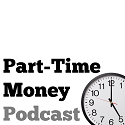 Today’s episode features David Weliver, who at an early age knew he was living beyond his means and taking on too much debt. His solution: working at Starbucks part-time at nights on the weekends as a barista.
Today’s episode features David Weliver, who at an early age knew he was living beyond his means and taking on too much debt. His solution: working at Starbucks part-time at nights on the weekends as a barista.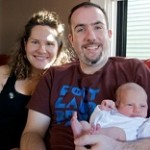 What made you want to start making part time money?
What made you want to start making part time money?

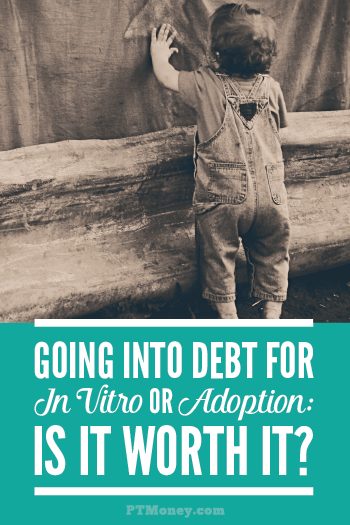
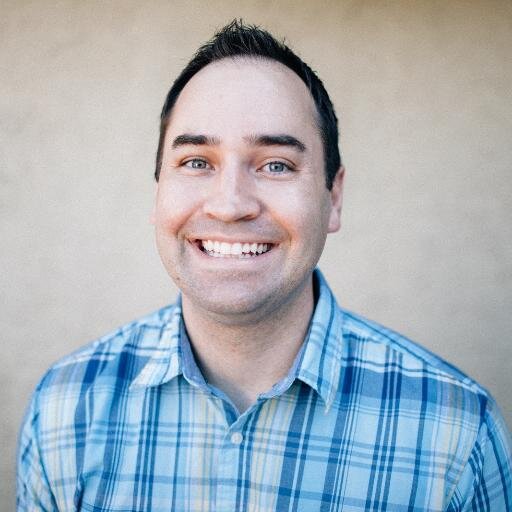
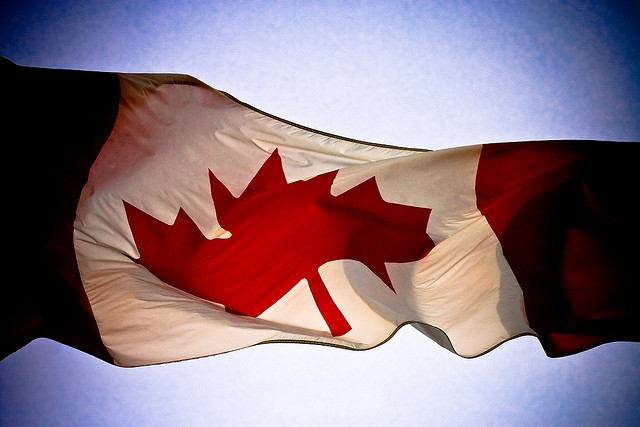
That seems to be a good job. I plan to apply next month in May.